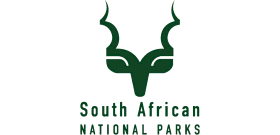 Kruger’s Afsaal Picnic Site Goes Fully Cashless, Enhancing Visitor Experience and Security
Kruger’s Afsaal Picnic Site Goes Fully Cashless, Enhancing Visitor Experience and Security
South African National Parks (SANParks) has officially transitioned the popular Afsaal Picnic Site in Kruger National Park to a cashless payment system, effective 1 November 2025. This move, confirmed in a recent SANParks social media alert, is part of a broader digital transformation aimed at improving convenience, safety, and efficiency for all park visitors. As of this date, no cash payments will be accepted at Afsaal for any transactions—guests are encouraged to use cards or approved digital payment methods during their visit.
This development is in line with SANParks’ ongoing strategy to modernize operations across South Africa’s national parks. The organization has been steadily rolling out cash-free initiatives since 2021, with the goal of streamlining entry, reducing queues, and minimizing security risks associated with cash handling. The Kruger National Park, in particular, has served as a testing ground for these innovations, prioritizing digital payments and improved online booking systems to enhance the overall tourist experience.
Located in the heart of the park’s Marula Region, between the Crocodile and Sabie Rivers, Afsaal Picnic Site is a favorite stop for travelers exploring the southern section of Kruger. Conveniently situated along the H3 tar road connecting Skukuza Rest Camp and Malelane Gate, Afsaal is renowned for its excellent facilities, lively atmosphere, and accessibility. The site offers a well-stocked shop, café/kiosk, braai (BBQ) stands, gas skottel (mobile frying pan) hire, and clean restrooms—making it an ideal mid-drive break for families, groups, and independent explorers alike.
Beyond its amenities, Afsaal is celebrated for its prime wildlife and birding opportunities. The surrounding habitat is rich and diverse, attracting regular sightings of large game such as elephants, buffalo, and antelope, as well as a variety of bird species. Its popularity means the site is often busier than more remote picnic spots, but its central location and comprehensive facilities continue to make it a top choice for visitors seeking both comfort and adventure.
The shift to a cashless system at Afsaal is expected to deliver several benefits for both guests and park management. For visitors, digital payments offer greater convenience, faster service, and reduced need to carry cash—an important consideration for international travelers and families. For SANParks, the move supports operational efficiency, lowers the risk of theft, and aligns with global trends in tourism management. The organization has emphasized that this change is part of a wider commitment to leveraging technology for improved guest experiences and safer, more sustainable park operations.
For Africa’s travel sector, the cashless transition at Afsaal signals a broader shift in how national parks and tourism sites are adapting to changing consumer expectations. As digital payment adoption accelerates across the continent, travel professionals should prepare clients for these new norms—advising them to bring cards or mobile payment options and to expect similar systems at other major attractions. This evolution also opens up new opportunities for partnerships with fintech providers and for the development of integrated travel packages that include seamless, cash-free experiences.
Travelers planning a visit to Kruger National Park should note that while Afsaal is now fully cashless, other picnic sites and facilities may follow suit as SANParks continues its digital rollout. The organization’s broader vision includes not only cash-free payments but also enhanced online booking, improved Wi-Fi access, and the use of technology to support conservation and visitor safety.
In summary, the move to a cashless payment system at Afsaal Picnic Site marks a significant step forward for Kruger National Park and sets a new standard for visitor convenience and security in African wildlife tourism. As the industry evolves, embracing digital solutions will be key to delivering world-class experiences and maintaining the competitiveness of Africa’s most treasured destinations.
